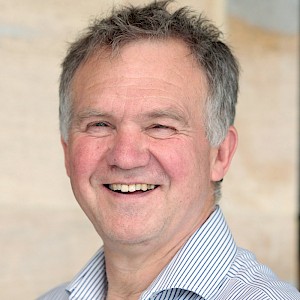Ian Maynard
 IN MEMORIAM: Ian Maynard
IN MEMORIAM: Ian Maynard
On March 14, 2025, we learned the sad news that Professor Ian Maynard passed away after battling cancer for the past 15 months. Ian was highly respected by colleagues internationally and nationally and, in Ian’s memory, it is an honour to be asked to share some of his many achievements and career highlights.
Ian’s distinguished career in Higher Education began at the University of Chichester (1987–1999), before he moved to Sheffield Hallam University, where he served as Director of the Research Centre for Sport and Exercise Science (1999–2017). In 2017, he joined the University of Essex as Head of Department in Sport, Rehabilitation, and Exercise Science, before retiring in 2024. During this time Ian mentored and supported many colleagues and students – publishing over 130 research papers, teaching, supervising PhD students, and supervising trainee sport psychology practitioners. Ian served as Editor-in-Chief for The Sport Psychologist and the Journal of Sport Psychology in Action.
In the United Kingdom, Ian was fundamental in advancing sport psychology as a professional qualification, contributing to the committees that developed sport psychology support for the British Association for Sport and Exercise Sciences (BASES) and the Division of Sport and Exercise Psychology (DSEP) within the British Psychological Society (BPS). Over the many years, Ian’s contribution to applied sport psychology was recognised by all three Associations, and he was a Fellow in AASP, BASES, and BPS. He was the recipient of the BASES practitioner of the year award (2005), awarded the Distinguished Professional Practice Award in 2015 (AASP), and the Distinguished Career award in 2019 (DSEP). For those who knew Ian, I’m sure these awards do not come as a surprise! As an applied sport psychology consultant, Ian worked with some of Great Britian’s most successful teams, including sailing, cycling, boxing, and diving – during this time he attended two Olympic Games and several World Championship tournaments. Ian also served on the English Institute of Sport’s advisory board. It is testimony to Ian’s passion for applied sport psychology and willingness to share his knowledge with the students he mentored that many of his supervisees hold prestigious roles in elite sport, including the Football Association, England Cricket Board, Professional premier league football clubs, and UK Sports Institute.
Ian was extremely passionate about sport. Over the years we shared friendly banter about the football (soccer) teams that we supported, and he enjoyed sharing stories of playing cricket for his local village team which was often a family day with his wife Rachel and their two children. Ian was a keen rugby supporter – he had previously played University rugby in Cardiff and for a league one team – the Saracens. In later years, Ian coached his son’s youth rugby team and proudly supported his daughter’s field hockey career.
And so, it is with a heavy heart that we say goodbye to Ian. His legacy will live on through the many students he has supervised and colleagues who have received friendship and guidance from him.
Respectfully submitted, Joanne Butt



